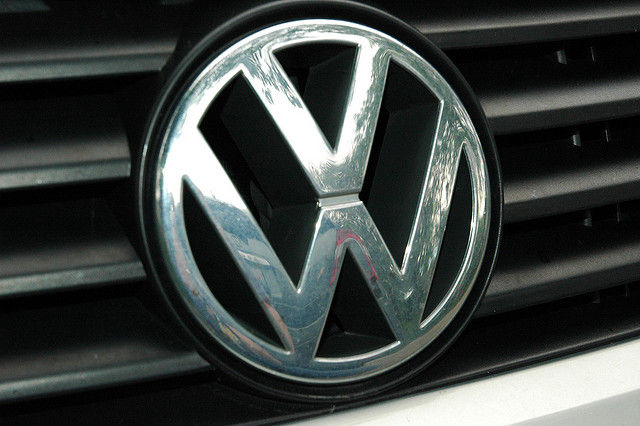
"I personally am deeply sorry that we have broken the trust of our customers and the public,” Volkswagen Chief Executive Officer Martin Winterkorn said in a statement Monday, addressing the so-called "defeat device" software the automaker built into its vehicles to deceive US air pollution tests. "We will do everything necessary in order to reverse the damage this has caused."
What led up to this mea culpa? Researchers from the International Council on Clean Transportation and West Virginia University performed all kinds of tests on VW vehicles, discovering that when the vehicles were on the road they polluted substantially more than when they were being tested for pollution emissions. Nobody could make any sense of how that could be. So the US Environmental Protection Agency threatened not to approve the automaker's 2016 models for sale. In response, the automaker said its software was designed to hoodwink emissions tests, the EPA said.
“Only then did VW admit it had designed and installed a defeat device in these vehicles in the form of a sophisticated software algorithm that detected when a vehicle was undergoing emissions testing,” the EPA said in an action letter to VW on Friday. The EPA wants VW to recall about 500,000 vehicles dating to 2009.
In the wake of the scandal, VW's stock has plummeted. It also leaves a black eye on the EPA, the agency that is supposed to regulate air emissions, as VW's shenanigans played the EPA for a fool.
Strangely, however, the EPA is standing alongside automakers, including VW. They all oppose proposed regulations that would allow the public to circumvent copyright protections measures attached to vehicle software. Also known as "technological protection measures" (TPMs), automakers employ this copyright ruse toward the goal of making it a Digital Millennium Copyright Act violation to examine or tinker with the code in vehicle software. And, for the moment, it's all legal, and the EPA wants to keep it that way.

About every 36 months, however, the Librarian of Congress and the Copyright Office entertain proposals for exemptions to the DMCA, which was passed in 1998. The DMCA disallows circumventing encryption or TPMs to copy or modify copyrighted works.
The Electronic Frontier Foundation says forbidding tinkering is an abuse of copyright law.
Modern cars contain dozens of computers called electronic control units (ECUs), and the code on those ECUs is potentially covered by copyright. But many repairs require access to that code, as does research into vehicle safety. When auto manufacturers deploy technology to lock people out of the code controlling their own cars, that can transform an act of repair or research into a violation of the DMCA. The result is that only persons authorized by the manufacturer can effectively perform repairs, and independent audits of car safety and security take place under a legal cloud, if at all.
For obvious reasons, the Alliance of Automobile Manufacturers opposes the EFF's vehicle software exemption proposal. The alliance, which includes VW, recently told the US Copyright Office that such an exemption would "create or exacerbate" (PDF) "serious threats to safety and security."
The vehicle software proposal would allow the circumvention of TPMs "in relation to computer programs, databases, and devices for purposes of good-faith testing, identifying, disclosing, and fixing of malfunctions, security flaws, or vulnerabilities."
The US Copyright Office is expected to rule in the coming months on the proposed vehicle software exemptions.
All the while, the EPA apparently trusts automakers over the public. The EPA doesn't want you tinkering with vehicle software because, of all things, you might increase the vehicle's performance and cause it to pollute more. Or, in the EPA's own words, (PDF) an exemption would "enable actions that could slow or reverse gains made under the Clean Air Act."
Regulations adopted by EPA... are responsible for a significant reduction in harmful emissions from motor vehicles. Computer programs installed on motor vehicles, controlling engine operations and minimizing emissions under a variety of conditions, have been critical to achieving the reduction, now over 90 percent since the passage of the 1990 Clean Air act amendments. One such computer program, the Electronic Control Module, continuously monitors the vehicle engine and emission control system and dictates, among other things, the engine's fueling and timing strategies for purposes of complying with the CAA and its regulations. TPMs for Electronic Control Modules make it difficult for anyone other than the vehicle manufacturer to obtain access to the software.
The EPA said it was not immediately prepared to comment on the situation.
Some outsiders were quick to weigh in. Raza Panjwani, the policy counsel at Public Knowledge, said in an e-mail to Ars that "Copyright law isn't an appropriate venue for addressing critical matters of public policy, like environmental, safety, and security concerns about vehicles."
Panjwani added: "If the penalties in the Clean Air Act and other regulations aren't enough to dissuade law breakers, it's unlikely that the DMCA is going to convince them otherwise. It's only the law-abiding citizens and researchers who are being discouraged."
VW's actions provide even more fodder for why motorists and the public should be allowed to tinker with their own cars, just like they have the right to change their car's oil. But according to the EPA's current position, the public can't be trusted to even examine VW's software. For now, we'll just have to trust the automakers.
reader comments
182